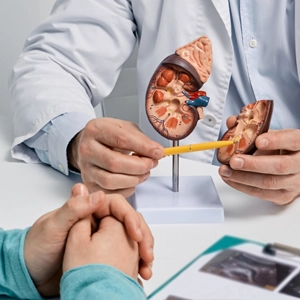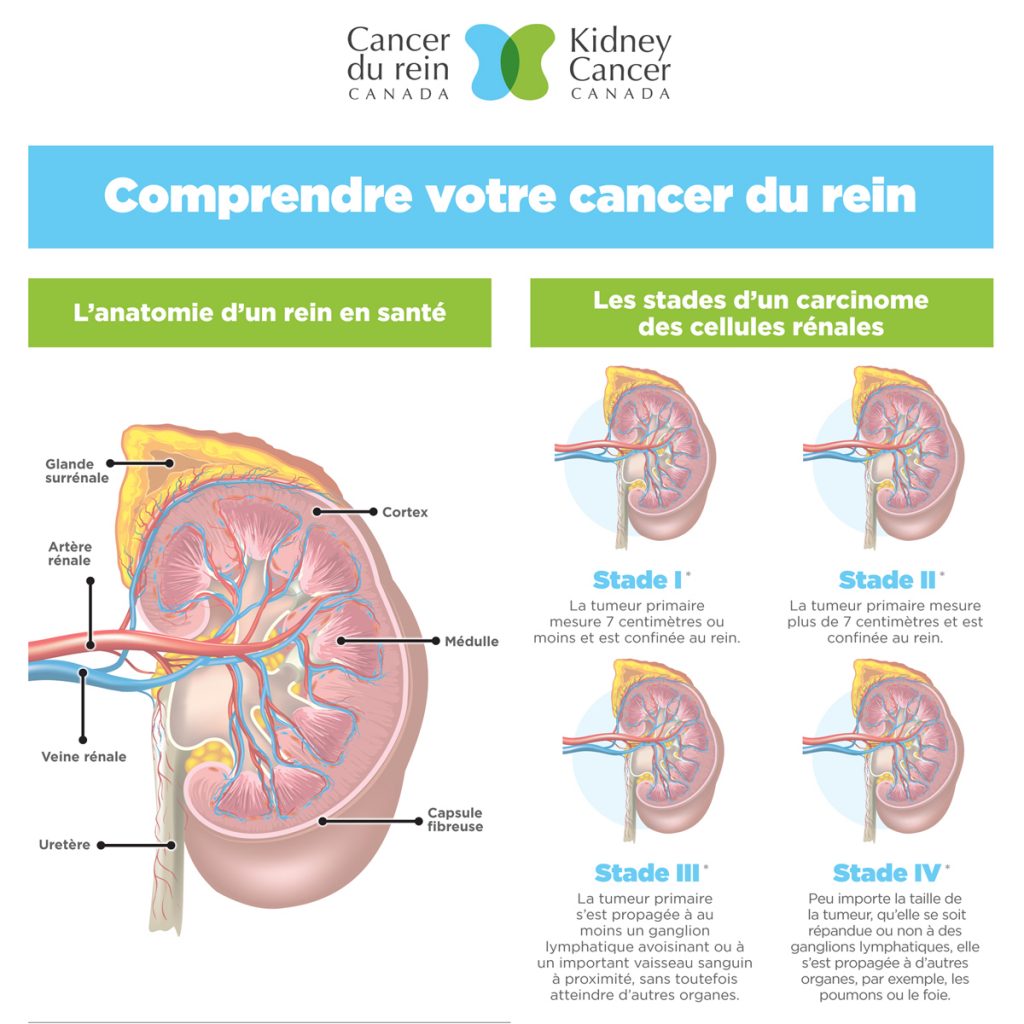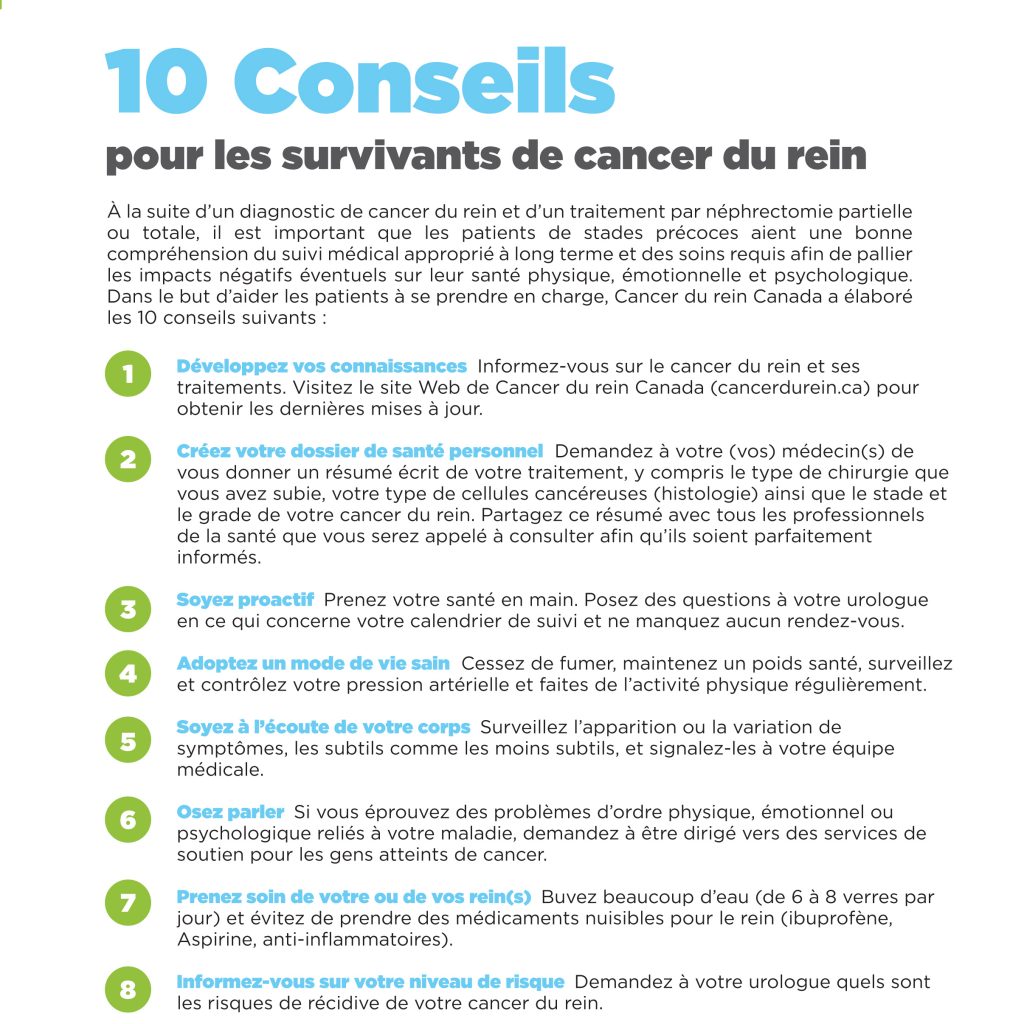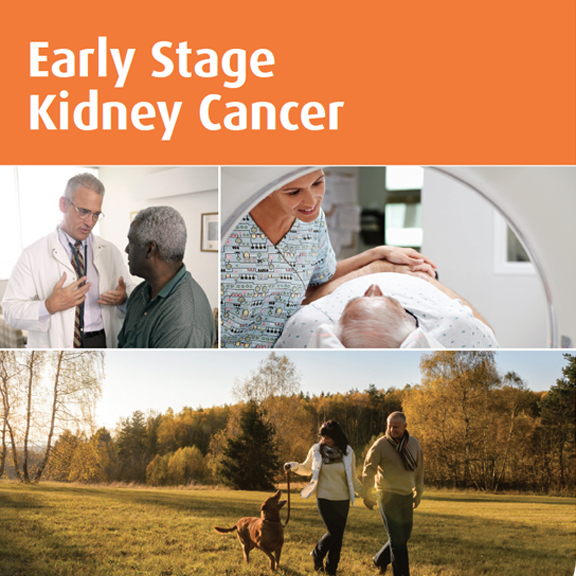The decision on whether you should join a clinical trial is an important step and you should discuss this option with your doctor.
It’s important to remember, you may enter a clinical trial at many points in your treatment/care pathways. Be sure to ask the first question. “Are there any trials I should consider?”
View list of kidney cancer trials in Canada
At what point should I ask about a clinical trial?
Potential Benefits
Clinical trials allow participants to play an active role in their own health care treatment choices. In addition:
- Participants gain access to new treatments before they are available to the public.
- Study treatments may give an additional treatment option that does not otherwise exist.
- Experimental treatments may prove to be a more effective treatment than the current standard treatment.
- Participants receive regular and careful medical attention from a research team that includes doctors and other health professionals.
- Some participants view increased tests and follow-up as a benefit.
- Participants help others by contributing to medical research.
Potential Risks
There may be risks to participation in a clinical trial. Every clinical trial has been reviewed by an independent ethics board. This board ensures that risks of participating are within reason and seen as similar to the regular treatment that patients receive. Some potential risks are:
- Some of the trials may be very early in treatment development. Therefore, the risks may not be known yet.
- New drugs/treatments may have side effects or risks that doctors do not expect or that are worse than those resulting from standard care.
- If the study involves more than one type of drug/treatment, participants may not be able to choose which drug/treatment they receive.
- Experimental treatment may not be effective.
- The study treatment may require more time involvement.
Who is Eligible?
The fact that you have kidney cancer doesn’t make you automatically eligible for a specific clinical trial. Each trial lists very detailed eligibility criteria. Some trials are open for first-line treatment only (that is, the patient has had no prior systemic therapy). Other trials are exclusive to a certain type of kidney cancer (e.g., clear cell rcc).
Types of Clinical Trials
Clinical trials fall into one of several categories:
- Phase I Trials are the initial studies of a new drug, combination of drugs, or treatment to establish the safest dose. They evaluate the safety of a drug at different doses, and determine if further clinical trials are needed. Most patients participating in Phase I studies have received several types of prior treatment for their cancer. Phase I trials may involve patients with a variety of cancer diagnoses in order to evaluate the safety and determine the appropriate dose and schedule of a drug or treatment in several types of cancer.
- Phase II Trials are studies which evaluate anti-tumour activity of a drug or treatment in a more defined group of patients at a standard dose and schedule. These studies involve patients with the same type and stage of cancer, and are very specific regarding the type and number of prior treatments that are allowed. For study entry, some Phase II clinical trials do not allow any prior treatment to have been given, and others will require that a specific type of treatment have been given.
- Phase III Trials compare the effectiveness and safety of two or more treatments in a large number of patients, and may involve up to 1,000 patients. These studies are often international studies, based on the number of patients participating. In Phase III studies, new drugs or treatments are compared with a “standard” treatment in kidney cancer.
- “Randomized” clinical trials typically are conducted in Phase III trials, and occasionally in Phase II trials. They compare two or more treatments, and may include a placebo group. Randomized trials are conducted on a large number of patients who are directed into one of the treatment categories using random selection techniques, often by computer. This randomization ensures the validity of the trial results.
What is a “Phase 1” Trial?
What is a “Phase 2” Trial?
What is a “Phase 3” trial?
What is a “Phase 4” Trial?



























































